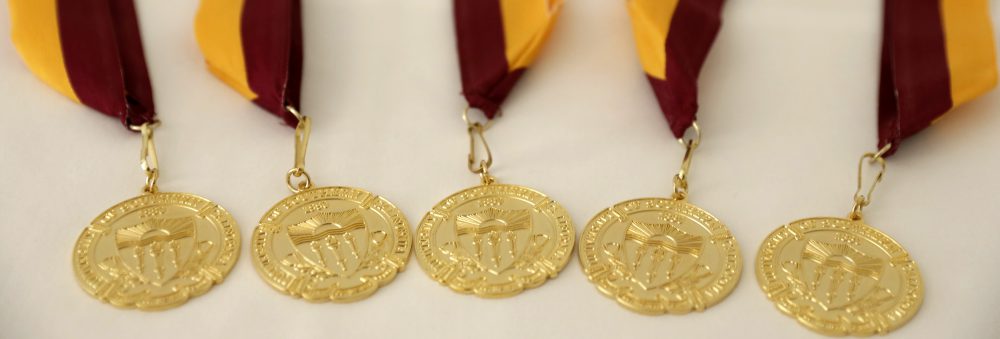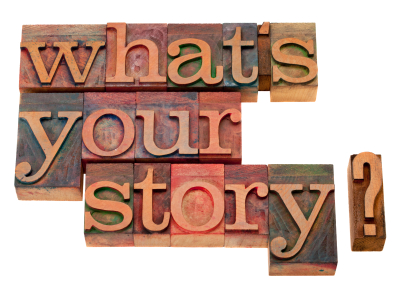Thank you to guest blogger Adam Feinman for synthesizing the wisdom presented at the 2014 Beyond the Ph.D. event last month.
 From the Badges series…
From the Badges series…
Beyond the Ph.D.
By Adam Feinman
On Thursday, March 13, USC’s Postdoc Association held its annual event, “Beyond the Ph.D.”, designed to provide advice and perspective to Ph.D. students and postdoctoral fellows in all fields who all need to have a real job someday and may not be sure what to do. After all, graduate advisors tend to encourage remaining in academia, being that they love it. I live-tweeted as much as I could under the hashtag #BeyondThePhD. I went to panels for engineers, but I think the advice I heard was very generic.
I’ve been grappling for a long time with the question of what path to take when I graduate. I was hoping to find some clarity by attending this conference, and that was a total fail. Everybody selected to speak at events like this loves what they do and couldn’t imagine themselves being happy in a different area.
I’ll spend more time going into some of the advice and perspectives presented, but if there was one take-away from the conference I think everyone could benefit from, it was:
“Looking for jobs is like throwing a hand grenade; close is good enough!”
That’s right, folks. There is nothing wrong with pursuing your dreams, but there may come a point at which you will need to just get a job. But those who hold a Ph.D. have two things in common: intelligence, and a need to be creative. If your dream job is not available, you can rest assured that you can find a job in which you’ll be able to find happiness and satisfaction.
This was a piece of advice every panel echoed. The above statement came from the industry panel. The academic version of this advice was: “A Ph.D. is a license to think; it doesn’t lock you into a field.”
This tweet got a lot of attention, mostly positive. It seems to resonate. Of course, Twitter forces conciseness, so I got some misinterpretations too…
“Hi. I agree that a institutional grade it’s not a fence, but no one need a grade from anywhere to think.”
I’m willing to forgive here that this person didn’t speak English and that they didn’t have any context. The real point of the quote was the second half. A Ph.D. is merely a credential that shows you know how to initiate a research project, provide and analyze evidence, and draw conclusions. The field you end up working in will be a combination of your expertise, your research vision, and circumstance.
Other good advice:
“RT @USCCareerCenter: PhD transferable skills: probability & statistics, problem solving, & teaching –@EllenLevy at Beyond the PhD Conference”
-
There are two aspects to research: fundamental understandings and applications. You can make a quadrant out of these, and knowing which you fall in can help you know where to go and sell yourself.
-
You’re only as sellable as your ability to communicate.
-
Having a Ph.D. and getting into business is easier than being a businessperson trying to develop an expertise, so we have an advantage.
-
Success is less dependent on your credentials and more dependent on understanding how your field works.
These statements are really true for all fields. In my own words, I tell people that a degree has no inherent value, it’s only as valuable as what you want to do with it. If you want to just be more educated because that makes you a thinking and/or well-rounded person, that’s fine. If you’re thinking about graduate degrees, it’s true that a graduate degree looks good on your resumé, but it doesn’t buy you a job. You have to tailor your education to your job interests and you still have to show you are hirable.
From the industry/consulting panel (one of whom was the science advisor for Battlestar Galactica! And he said “So say we all!” squeeee!)
-
Join meet-up groups, great way to network
-
Current professors joined academia when it was growing, but growth in the job market has plateaued.
-
Robust results are more important than p-values
-
Have to be a good people person
My favorite piece of advice from this panel (aside from the above one):
“If you and your SO have different fields… work in Los Angeles! We have everything here!”
In addition to perspectives on academia, the professors had good interview advice:
-
How many jobs allow you to do whatever you want for seven years as long as you can raise funding for it?
-
Your research statement is who you are. you can emphasize elements of it depending on what you’re applying for, but you shouldn’t be making dramatic changes to it.
-
Use the cover letter of your application explain how you fit into the department and what you can add that they are lacking.
-
Unlike a degree, postdoctoral (PD) fellowships have inherent value. Don’t use a PD as a placeholder. Do a PD and/or choose where to do them based on the skill set you want to develop. Also, be aware of your field’s standards on PDs. (For example, if you’re an engineer, don’t do more than one!)
-
PD is a time when you have a lot of freedom to create and expand your CV without the tenure clock ticking. It also allows you to learn the in-and-outs of academic lab management without the responsibility. Going straight from grad school to faculty could be a rude awakening.
-
Apply to anything that moves; you don’t want your first interview to be at the place you really want to be at.
-
A person who doesn’t doubt their ability to be an academic is probably delusional. The key is to overcome that doubt and prove yourself. Over and over.
-
Make sure job talks are really well rehearsed. Rehearse it in front of people who can nail you on the fine points, but also in front of people not conversant in your field so you can know which points need to be explained more fully as you tell your story.
In the government careers panel:
-
AAAS and the National Academy of Sciences all have policy fellowships. (The former president of the Postdoc Assn. spoke on this panel, she is now an AAAS Fellow in DC.) Many government agencies have their own fellowships.
-
Academic societies (e.g., Society for Neuroscience, The Endocrine Society, etc.) have two groups of employees: policy and education/outreach. Policy workers are the people who advise Congress on any decisions relevant to their field. Education employees research relevant topics and educate practitioners (e.g., neuroscientists, endocrinologists, etc).
-
The title of the job does not define the job, you have to do your homework. The same title in different offices is a totally different job.
-
These jobs are a good mesh between writing, research, and people skills.
Nobody really answered my question about what to do with my life after graduate school. If anything, my current plan has been corroborated: apply hard for academic jobs, but be prepared to look elsewhere sooner than later. I enjoy the flexibility that academia affords; if I’m going to look elsewhere, I’m likely going to need to create a career path that will not merely be creative, but also flexible.







